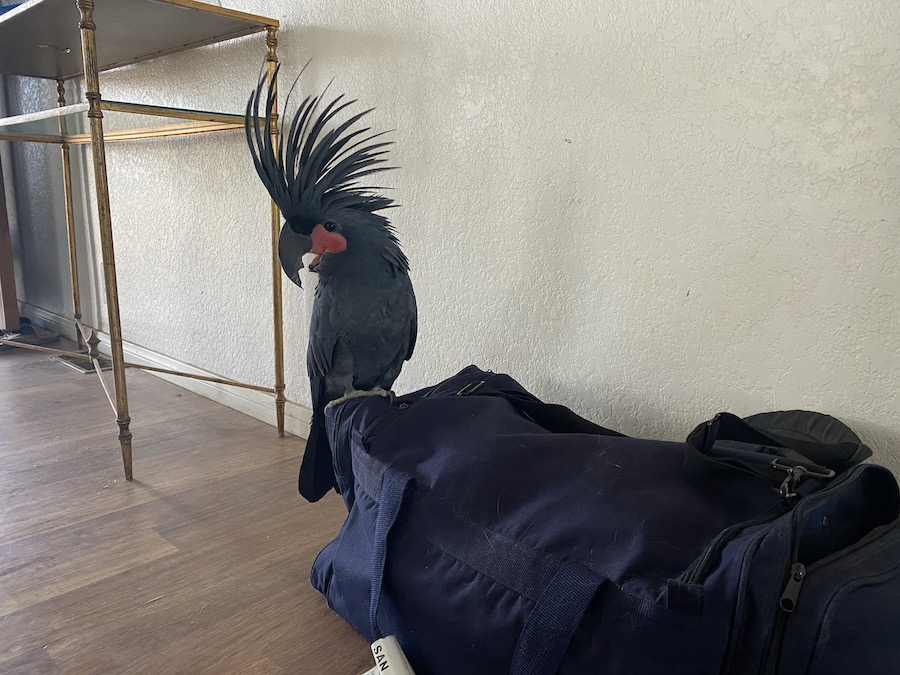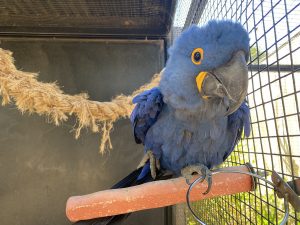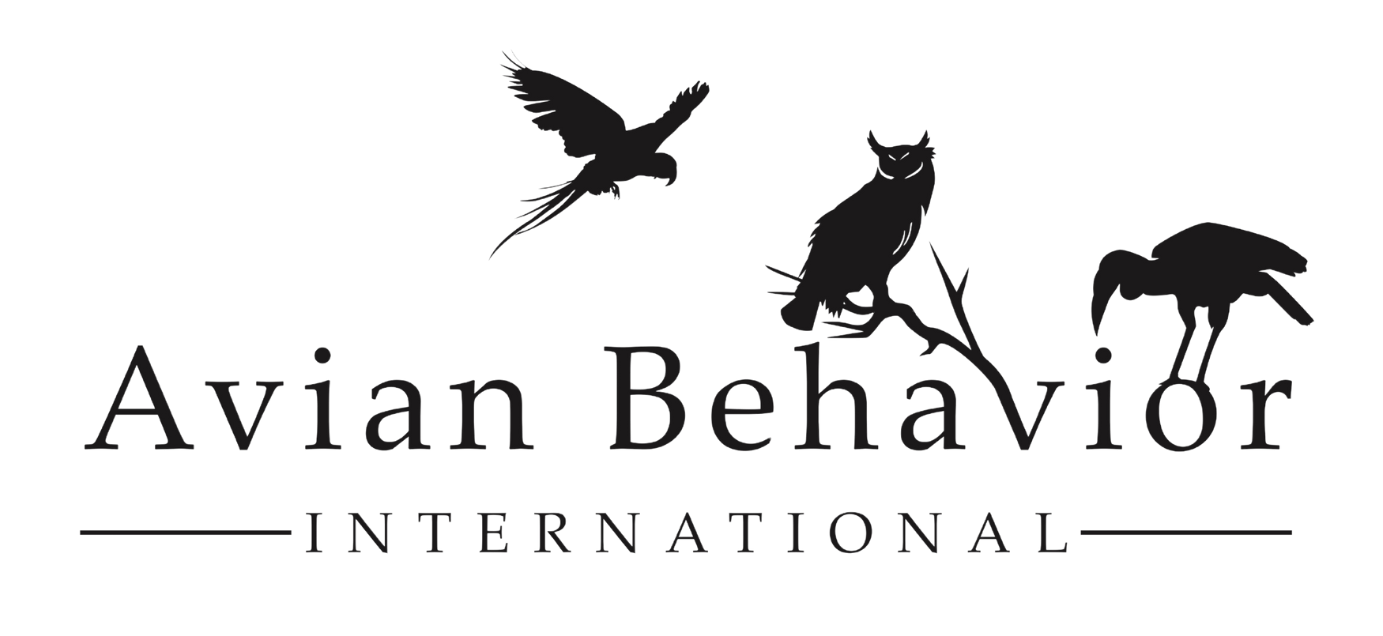
27 Jul Is Your Animal Companion Punishing You for Going on Vacation?
It’s the summer of 2022, and a lot of people are no longer putting off their travel plans due to the pandemic. If you remember what life was like pre-Covid, you might have returned from a vacation to find your companion animal seemingly less than pleased that you were gone. It feels like they have an uncanny way of punishing us, from uncharacteristic messes on the floor, shredding our luggage, or in the case of parrots, ignoring us or showing aggressive behavior. It’s hard not to take this personally! But are our animals really mad at us? Let’s look at the science behind this behavior and how we can navigate these tricky responses.
There are phases in my work where I have to away for chunks of time consulting at other animal facilities. Returning home to the animals is like reading a library of different responses. My dogs are bouncing of the walls with enthusiasm to see me, but  with some of the birds, the reception is a bit different. Some of my macaws will show anxious behaviors like lunging at me, grabbing their tails, and displacing aggressive responses on their macaw buddies. They might be a bit squawkier for a few days and pinchier, and this generally subsides within a week. For some bird species, it’s not uncommon to see an exaggerated fear response to familiar stimuli.
with some of the birds, the reception is a bit different. Some of my macaws will show anxious behaviors like lunging at me, grabbing their tails, and displacing aggressive responses on their macaw buddies. They might be a bit squawkier for a few days and pinchier, and this generally subsides within a week. For some bird species, it’s not uncommon to see an exaggerated fear response to familiar stimuli.
Horses can show what seems to be apathy, turning their butts to your face, well potty-trained dogs and cats alike might make a mess on your floor, or worse, the bed, all making a joyous return to our beloved animal families feel a bit rotten.
It’s not only common but understandable to take these reactions personally. It feels like our birds are mad at us. Their responses feel so human like, so resentful, that we map our emotional experiences on to theirs and feel that they must resent our absence, that they must have felt that we abandoned them.
The problem with this narrative is that abandonment is a human construct and is laden with a variety of emotions on both sides. Similarly, if we feel that our companions resent us, we are also drawing a narrative about our relationship that may not lead us to the simplest or smoothest solution. Our birds, dogs, horses, and yes, even cats, are capable of tightly knit social bonds, and many different forms of relationships. They can have pair bonds, familiar bonds, and even adversarial bonds. Survival in the wild for social animals is contingent upon these bonds. That said, mortality in the wild is also extremely high, so a bird must adapt to change, adjust to a lost relationship and move on quickly in order for themselves and their offspring to survive. While some species have somewhat ritualized grieving processes, such as corvids and elephants, the grieving process doesn’t last long.
What this means for us is not that your companion animal forgot about you or moved on in your absence, but they adjusted to the routine as quickly as they could. They have evolved and adapted to figure things out to move on for their survival. When a member of their close familiar circle returns, a wild mixture of emotions and responses ensues, with overstimulation and confusion manifesting in different ways.
Now that we understand why our animal companions act the way they do when we leave them, what do we do about it? The first and most important step is to take the behavior at face value. This means that we don’t add any narrative about why they are acting this way, or try to act as if nothing is wrong and go about how we would normally interact with them. Their emotions, their responses have merit, and we must respond accordingly.
Second, avoid reacting overdramatically or over energetically when you return, as this amps up the energetic quotient and can increase the issues. Assess your animal’s body language: are they tense, with eyes moving around quickly and showing aware or anxious body language? Or do they have soft eyes, offering “needy” behavior, nuzzling you and acting eager for attention? Either of these can lead to miscommunications in this reintroductory period that we want to take care in. Taking a step back in our interactions and sticking with the basics if we need to keeps everyone safe, stress-free and is a judgment free option. Our relationships are fluid and flexible, and it’s ok if we aren’t always as close and on the same thread of communication as we were yesterday.
Preparing for your absence is a highly individualized program, one which we talk about a bit in the Avian Behavior Lab. How you choose to have your animal companions care for in your absence depends on many variables. One thing to consider no matter what you opt for is to start mixing up their routine a few weeks in advance so that they are accustomed to needed to flex. Have them eat at different times, vary their bed times and wake up times, and play around with their exercise, training, and play schedules. Toying around with structure can make a huge difference! While you are gone, keep their requirements simple for the care taker to avoid major stressors. Some tasks that are easy for you could be very challenging for someone who doesn’t have the same relationship with your animals. Birds – and even domestic animals like dogs and cats – may not be willing to offer the same behaviors in front of a stranger.
Relax and enjoy yourself! Life is about change, and our animals are capable of adjusting. Balance over time and learning to inoculate from large stressors by handling smaller stressors will lead to a healthy and happy life!

